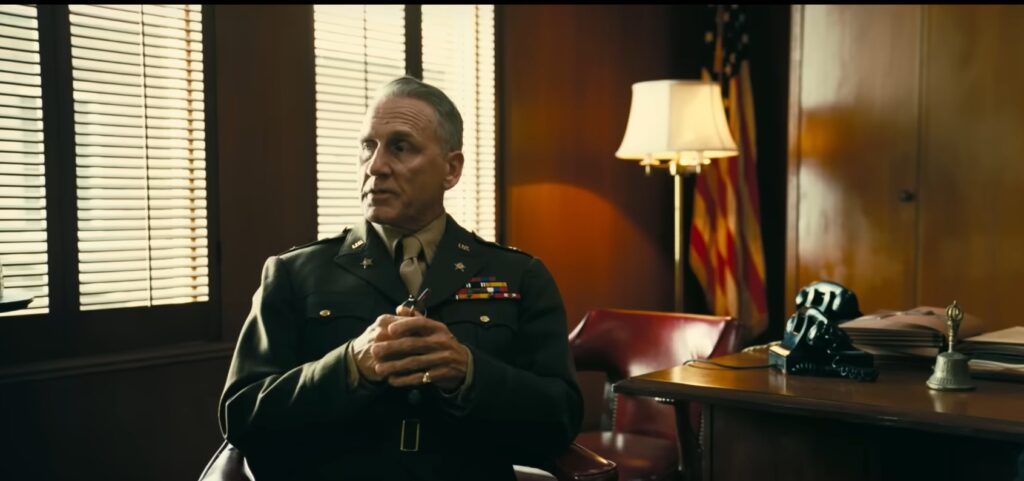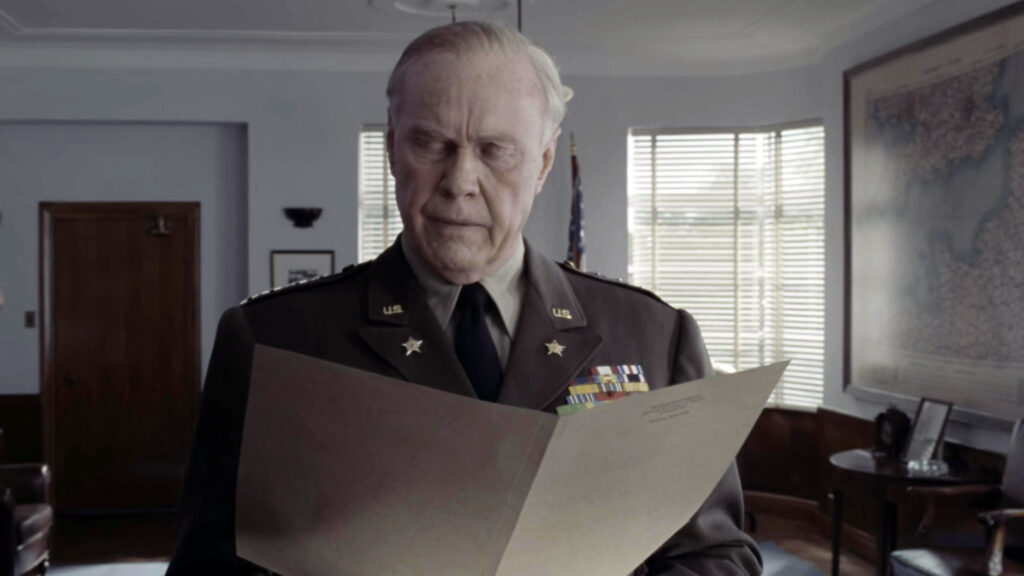Short but pivotal
Two movies about World War II, both featuring historical portrayals of Army Chief of Staff Gen. George C. Marshall. Both portrayals are short but pivotal and focus on an important decision. One movie is celebrating its quarter century this week; one movie is in the theaters this week.
I am of course referring to the movies Saving Private Ryan and Oppenheimer. In Saving Private Ryan, Marshall is asked about saving a young private somewhere in northern France just after D-Day, whose family had already lost several sons in the war. He responds by reading a condolence letter from President Abraham Lincoln to Mrs. Lydia Bixby, who had lost several sons serving in the Union Army.
In Oppenheimer, Marshall is participating in a discussion with Secretary of War Henry Stimson and others about the first use of the new atomic bomb.
How do the portrayals of Marshall match with what we know about him?
Marshall appreciated history; he told a group of headmasters that “it is hard to believe that a man familiar with the history of the centuries could fail to guide his course somewhat by the lessons of the past” in 1923. This does not mean that he leaned on history as complete guidance for future choices – Marshall recognized that World War II was going to be dramatically different than his experiences in World War I.
Marshall had one overarching responsibility as Army Chief of Staff – to win the war as soon as possible. This had to be his focus, and he couldn’t allow anything to distract him from the goal of bringing the men and women serving in the military around the globe home to their families and friends. He had to resist even worthwhile efforts to make the Army more egalitarian if it meant that training or deployment of soldiers would be delayed.
Marshall certainly cared about the soldiers. When he found out that soldiers training at Fort Benning (now Moore) lived in unfinished barracks in the winter, he angrily instructed the soldiers be supplied. “We are going to take care of the troops first, last, and all the time,” he reportedly said.
Marshall realized the sacrifices made by soldiers and their families and wanted others in power to be mindful of the soldiers and their sacrifices. He told biographer Forrest Pogue that he was “careful to send Mr. Roosevelt every few days a statement of our casualties. You have to be very careful to keep them always in the forefront of your mind.”
There’s a difference between caring for soldiers as a group and making special exceptions for individual soldiers. Marshall lost his beloved stepson Allen a week before D-Day to sniper fire at Anzio, Italy. The continued planning for the invasion was so all-encompassing that he could not join Katherine traveling to New York to inform and comfort their daughter-in-law, Madge. Marshall understood that sacrifice was part of war, and did not make exceptions, even for his own family. His correspondence during the war contains examples from those asking for help to either get closer to, or farther from the war. Marshall acted on only those that benefited the war effort. The idea that he would agree to a mission that put several in grave danger to save the one is not in keeping with his character.

Actor Will Roberts playing Gen. George C. Marshall in Oppenheimer.
His observation in Oppenheimer about the use of the atomic bomb is “World War II would be over; our boys would come home.” This short phrase speaks directly to Marshall’s ultimate goal: Winning the war sooner so the troops could come home. Not only is it an idea that Marshall would have espoused; it’s phrased as he would have said it, “our boys would come home.”
The scene of Gen. George Marshall in Saving Private Ryan can be found on the Internet. A short clip of the scene of Gen. George Marshall in Oppenheimer is here, at 1:59-2:02: https://youtu.be/uYPbbksJxIg
Before becoming director of library and archives at the George C. Marshall Foundation, Melissa was an academic librarian specializing in history. She and her husband, John, have three grown children, and live in Rockbridge County with two large rescue dogs. Melissa is known as the happiest librarian in the world! Keep up with her @MelissasLibrary.

